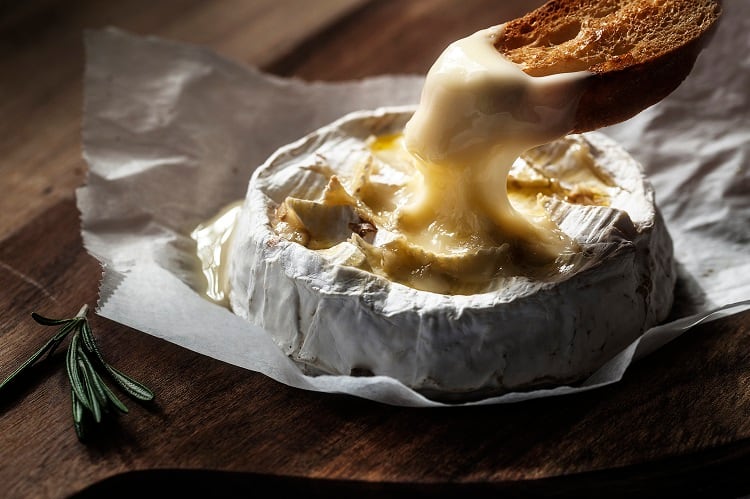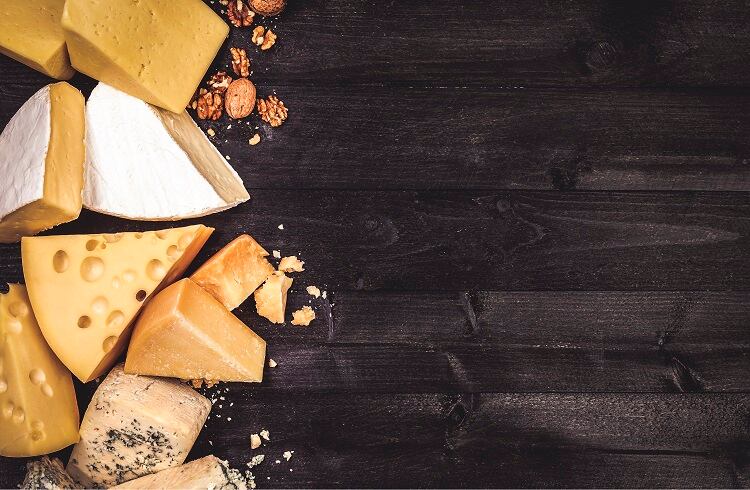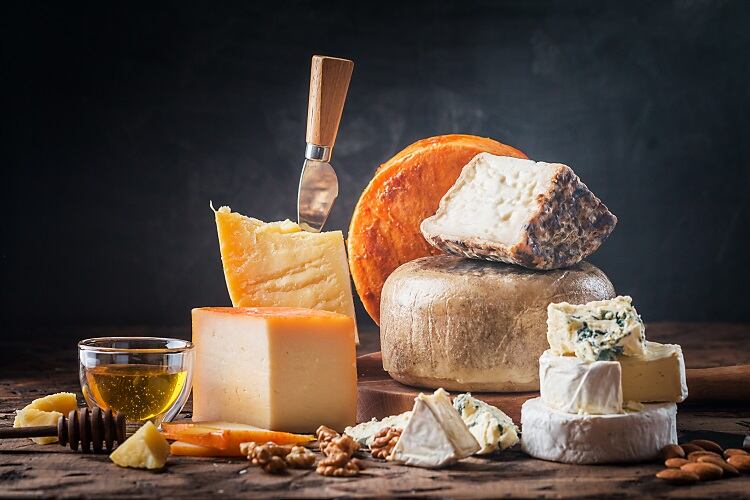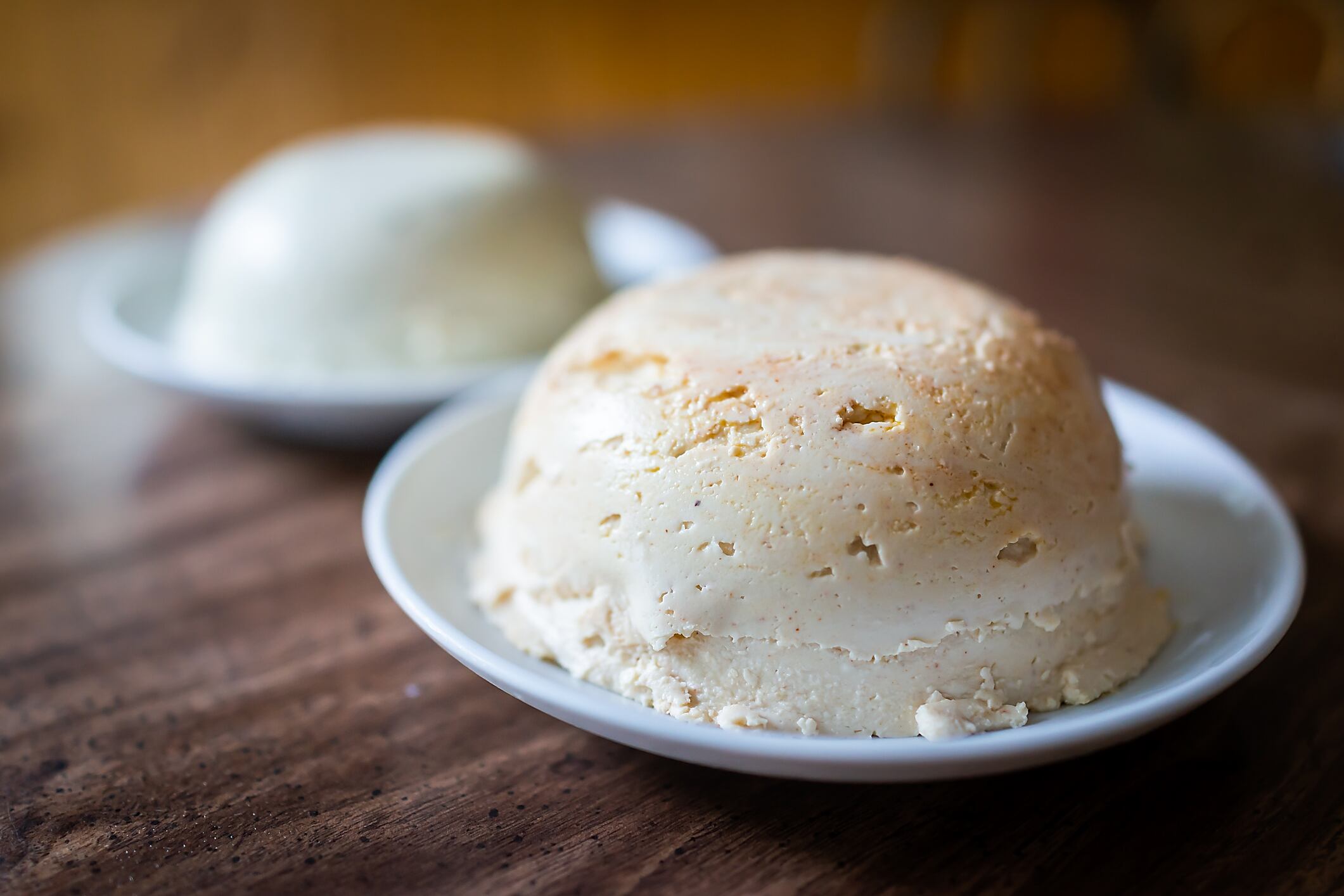Plant-based cheese is big business. Globally, the sector is expected to be worth $3.9bn by 2024 – marking a $1.8bn increase from 2016 figures, according to Variant Market Research.
As these figures suggest, the vegan cheese market has yet to reach peak ripeness, with experts indicating there is still much ‘white space’ to move into.
‘Huge potential’ for soft cheese alternatives
Plant-based cheese is the ‘fastest growing category’ within the vegan food world, according to Veganz Group.
The German plant-based brand started out as Europe's ‘first’ vegan supermarket chain and has since expanded into manufacturing. Today, Veganz boasts a portfolio of around 165 plant-based products sold across 26 countries.
CEO Jan Bredack believes there is significant room for the category to grow. “If you compare the overall market for conventional cheese products with plant-based cheese alternatives, we see that there is a lot of potential here,” the Veganz executive told delegates at ProVeg Incubator and NX-Foods’ Future Food Series event last week.
“We will see double digit growth rates every year for the next 10 years.”
One area particularly ripe for innovation, according to Bredack, is the soft cheese alternative segment.
“The total market for cow’s milk soft cheese is around €1.2bn. If plant-based soft cheese alternatives only achieve a market share of 5%, it would mean €60m in annual sales with just one product. This is really amazing and suggests huge potential for many market participants.”
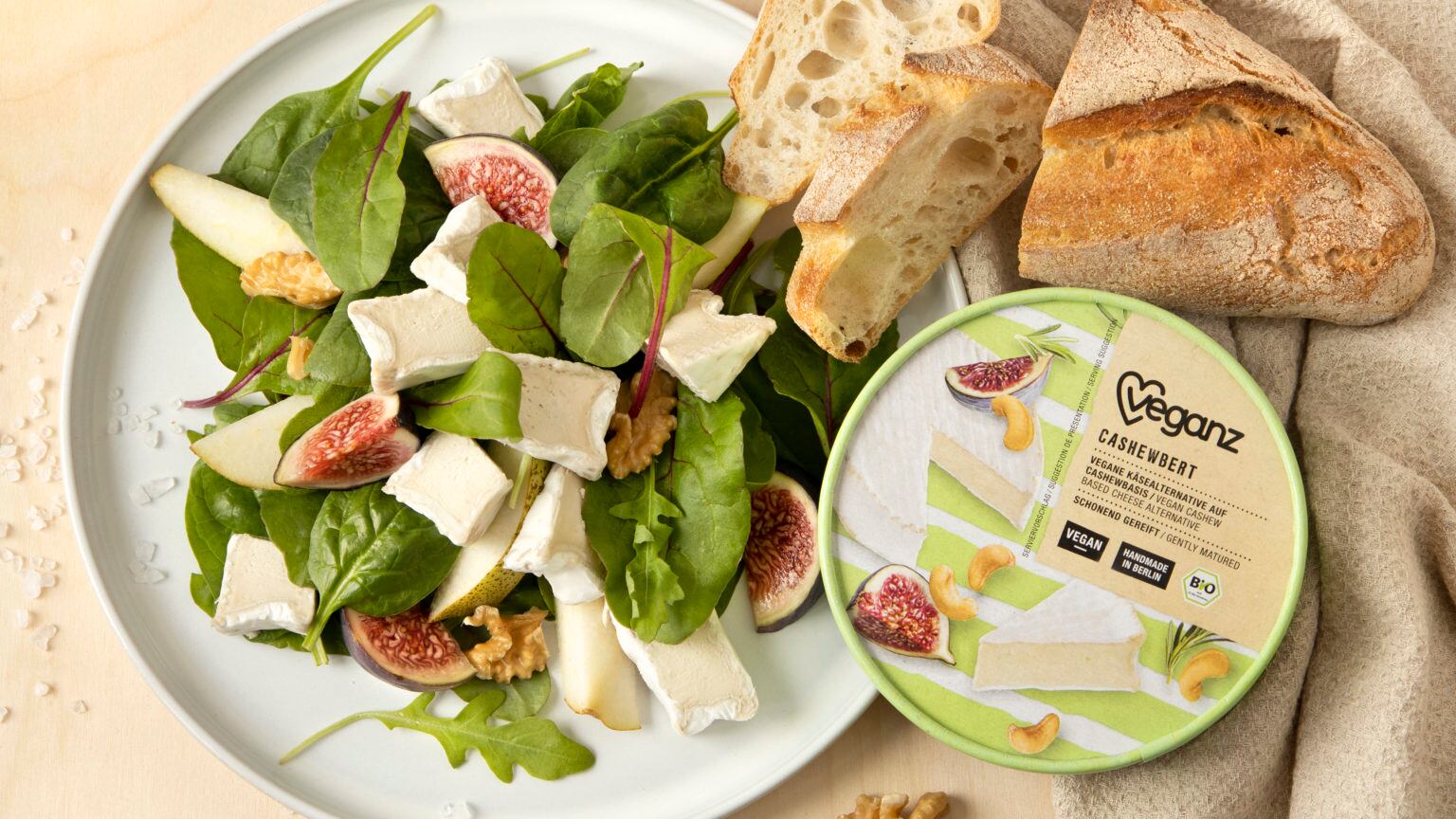
Veganz’ answer to this gap in the category is a plant-based alternative to camembert: Cashewbert. Made from just five ingredients – including cashew and macadamia nuts – the product is fermented and matured at Veganz’ own production site. The 200m² facility can make up to 2000 Cashewbert products per day.
“We could produce more, but we are limited by the space taken up by the maturation rooms,” he explained, adding that the cheese alternative is matured onsite for a period of 10 days. After packaging, it continues to mature, and has a standard shelf life of around 40 days.
The CEO stressed there is ‘enough space’ in the category for more companies and more products, as relatively speaking, ‘sales are actually still at the low level’.
In response to the brand’s forecast of significant growth in the area, Veganz is expanding its production capacity, Bredack revealed. “Due to high demand, and because we believe the market will continue to develop exponentially, we are currently planning our second 4,000m² product facility in Berlin.”
Nut, legume, and mixed plant-protein fermentation
As is stands, there are two main types of plant-based cheese alternatives on the market. One, based on oil and starch, is best suited to hard cheese analogues. Veganz uses this method to produce its Gourmet Pieces product, which aims to mimic Gouda.
The other technique, which Veganz uses to produce its Cashewbert product, is more closely tied to conventional cheesemaking methods based on fermentation and maturation.
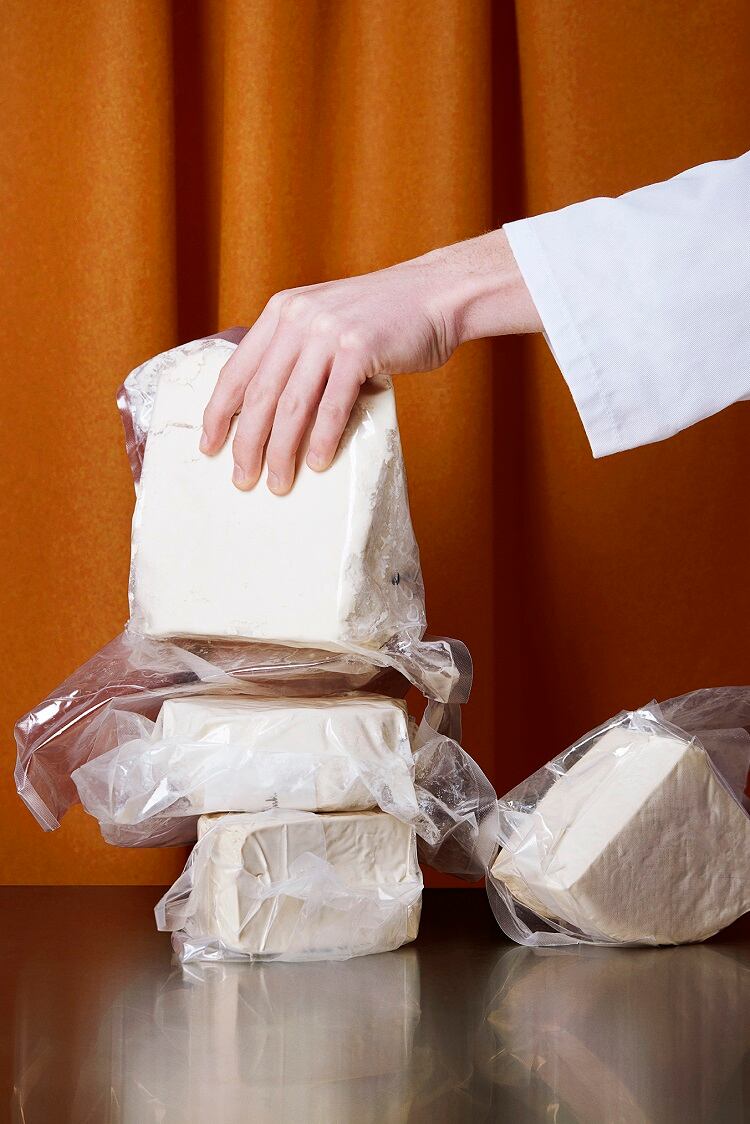
From a functionality perspective, Bredack sees significantly more room for development within the fermentation category. “I don’t believe the starch and oil cheese alternatives will [get much] better in the next couple of years, I think we have seen the top level of quality at the moment,” he told delegates.
“But for the nut [versions], I think there are many possibilities and opportunities for new development.”
The fermentation and maturation method is also where Swedish start-up Stockeld Dreamery perceives ‘white space’. This method, founder and head of R&D Anja Leissner argued, provides the ‘full taste experience’.
Stockeld Dreamery, however, is straying away from nuts – which often come with a high price tag – looking instead to legumes and plant-based protein combinations.
“I’ve tried some nut-based cheese, and some are really good. But we also want to be able to reach the larger masses. We want to have a real impact and reach a lot of people. In order to do that, we believe we need to have a raw material that is a little more sustainable and accessible,” explained Leissner at the Future Food Series event.
The R&D chief has been researching plant proteins for ‘about three years’ to find a plant-based alternative to casein – the dairy protein that helps provide meltability, flavour, and fat binding in conventional cheese.
The selected plant proteins, the specifics of which Leissner did not disclose, work together in a matrix alongside plant-based fat that works as a ‘taste carrier’ while adding creaminess and mouthfeel.
“We are working with proteins and fat…combining traditional cheese making [methods] with new technologies in order to get the best of both worlds.
“We are fermenting our cheese at the moment, and instead of adding in a lot of natural flavours or other additives to achieve the flavour or textural appearance we want, we’re using the fermentation system to get to that point," she explained.
Spotlight on protein
Health is another reason Stockeld Dreamery is working with fermentation and maturation, rather than oils and starches.
Analysing the nutritional profiles of these two methods can reveal significant disparities. Using Veganz’ products as examples, the nut-based Cashewbert has more calories per 100g (376g vs 281g) than its Gourmet Pieces – which are made from coconut oil, as well as potato and tapioca starch. The latter, however, is 12.6g higher in saturated fat per 100g.
From a protein content perspective, Veganz’ Gourmet Pieces product is devoid, whereas Cashewbert contains 11g protein per 100g.
Comparing the two methods – and not Veganz’ products in particular – Stockeld Dreamery’s founder said she ‘definitely’ prefers nut-based cheese, ‘due it its ingredients’. “Personally, I do not buy the coconut oil and starch-based cheeses. I’ve tried probably each and every one that is out in the market, but it’s not really my cup of tea. I like to have the full taste experience and I like to feel full and feel happy in my body afterwards.”
Leissner wants her consumers to feel ‘satiated’ after eating her legume-based products – something that comes from satiating protein. “We are extremely focused on developing what we think is needed, which is products that will leave consumers feeling more satiated and that will [provide] a more comparable experience to the animal versions out there.”
Stockeld Dreamery’s first product, expected to launch into Stockholm restaurants by the end of next month, fits the brief. “The product will be a feta cheese substitute,” she revealed, adding that spreadable cheese and pizza cheese alternatives will also be on the cards down the line.
CEO of plant-based cheese brand Violife, Anthimos Misailidis, similarly perceive protein as becoming ‘increasingly important’.
“Our products are currently relatively low in protein,” he said of the brand’s coconut oil and starch-based products, which after just eight years on the market are available in around 65 countries. However, Violife’s portfolio may receive a protein boost going forward, the CEO revealed.
“Fermentation is one way of [increasing protein content], but currently most people know that it has its challenges – especially [when it comes to] scaling up the whole process. So we are trying to see things a little bit differently.”
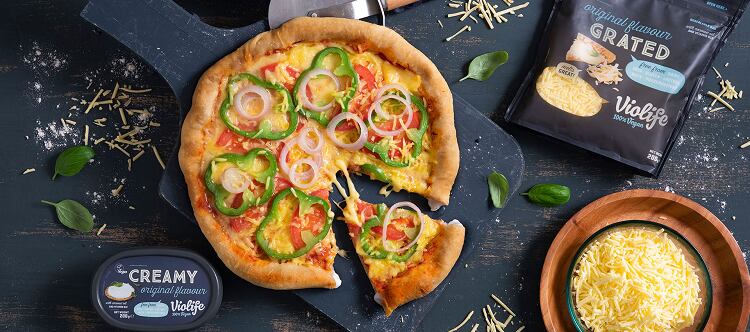
Rather than fermenting at an ‘end product level’, Violife is exploring the use of fermented ingredients at an earlier stage in the process, that Misailidis said ‘could end up providing end functionalities’.
So what ingredients does the Violife executive have in mind? “It’s no secret that everybody is currently looking at plant proteins,” he told delegates. “You need some kind of combination [of plant proteins] to get the good part of each element and [achieve] total functionality in the end product.”
All players are approaching plant-based cheesemaking from different angles, he continued. “Everybody is trying to do the same thing, and hopefully, all of us will get it right at some point.”


